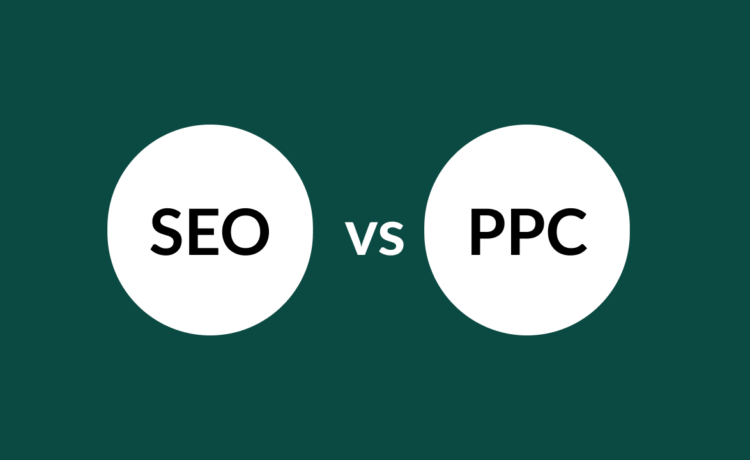When you’re running an e-commerce brand, one of the first marketing questions you’ll face is: “Should we go with SEO or PPC?”
On paper, they look like two separate strategies. SEO is slow and steady. PPC is fast and expensive.
Most brands feel like they need to pick one—or worse, put them against each other like it’s a marketing budget death match.
Here’s the truth no one tells you upfront: it’s not about choosing between SEO and PPC. It’s about figuring out how to get them to work together.
If you want serious growth, you don’t need a coin toss—you need a plan that uses both channels to their strengths.
Let’s break this down.
What SEO Brings to the Table
When you invest in search engine optimization, you’re doing more than writing product descriptions with keywords.
You’re building a system that brings in free, high-intent traffic—month after month—without relying on paid ads.
A good ecommerce SEO agency will help you:
- Identify what your customers are actually searching for
- Optimize category and product pages to rank organically
- Build a content strategy that pulls in traffic even when ads are off
- Clean up the tech side (site speed, structure, indexing) to keep Google happy
The benefit, SEO builds equity. You’re not renting space at the top of Google—you’re earning it.
And once your pages are ranking, you’re not paying per click. You’re capturing search demand passively, 24/7.
But let’s be real—SEO takes time. Months, not days. That’s where PPC fills the gap.
What PPC Brings to the Table
If SEO is a long-term investment, PPC is your instant-on switch.
Want to test a new product launch? Need to boost traffic during the holidays? Trying to recover from a slow sales week?
Pay per click management services let you show up immediately in front of people who are already looking to buy.
And that’s the key—intent. When someone clicks on a shopping ad, they’re not browsing. They’re usually comparing products, checking prices, or about to hit “add to cart.”
PPC helps you:
- Drive targeted traffic to high-converting product pages
- Show up for branded searches (so competitors don’t snipe your name)
- Retarget people who visited but didn’t buy
- Maximize SERP coverage with both paid and organic listings
You’re paying for it, yes—but when it’s done right, the ROI is clear and trackable. And it gives your team the flexibility to push or pause based on real-time needs.
Why Choosing One Limits Your Potential
Here’s where most e-commerce brands mess up—they treat SEO and PPC like they’re in competition. But in reality they’re two sides of the same coin.
Let’s say your SEO is solid and your blog brings in tons of traffic. That’s great. But if your top-performing pages aren’t converting well, PPC data can tell you why.
You might realize that your ad audience responds better to certain product images, headlines, or pricing.
Flip it: let’s say your ads are converting like crazy, but your cost per acquisition is creeping up.
A stronger organic presence could help offset those rising ad costs and bring in customers who are already searching for your product without clicking on ads.
When you combine both strategies, you get:
- Consistent traffic (organic)
- Instant visibility and sales boosts (paid)
- Better retargeting options that sharpens messaging
- Data that feeds back into smarter SEO and ad campaigns
- Visibility in both paid and organic slots—which builds trust
It’s not about choosing one option. It’s about stacking the deck in your favor.
Where an Expert Team Makes a Difference
Doing both SEO and PPC in-house sounds great—until you realize how much goes into it. And hiring one generalist agency? That’s where things can fall flat.
You need a team that knows e-commerce—not just SEO in theory or Google Ads in a silo. A partner who understands how product feeds, landing page optimization, CRO, and technical SEO all connect.
A smart ecommerce SEO agency will talk to your PPC team. A sharp PPC manager will look at what’s ranking organically and how to protect those keywords. They’ll work together, not in isolation.
And that’s when things start clicking. Literally.
Data: The Secret Weapon of a Unified Strategy
When you combine both efforts, the real magic is in the data.
SEO can tell you what people are searching before they convert. PPC can show you what messaging drives conversions. Together? You learn fast—and you scale faster.
A few examples:
- PPC can help test which product titles or meta description gets more clicks—then you apply that to your meta title and tags in SEO.
- SEO pages with high bounce rates can be flagged—and you can test new versions using PPC traffic.
- If your paid keywords are converting but expensive, your SEO team can start building content around those same terms to drive down overall cost per acquisition.
Data-sharing makes both strategies smarter. That’s where growth lives.
Final Word: You Don’t Need to Choose—You Need to Integrate
If your e-commerce business is serious about growth, don’t waste time debating SEO vs. PPC. That’s an old conversation.
Instead, ask how you can make both work smarter for you. Invest in organic search so you’re not dependent on ad spend forever.
Use paid ads strategically to push traffic, test faster, and scale what works.
And most importantly? Work with a team that knows how to connect the dots—whether that’s a full-service agency or two teams working in sync.
Because in e-commerce, success doesn’t come from silos.
It comes from stacking smart strategies—and letting them power each other.





